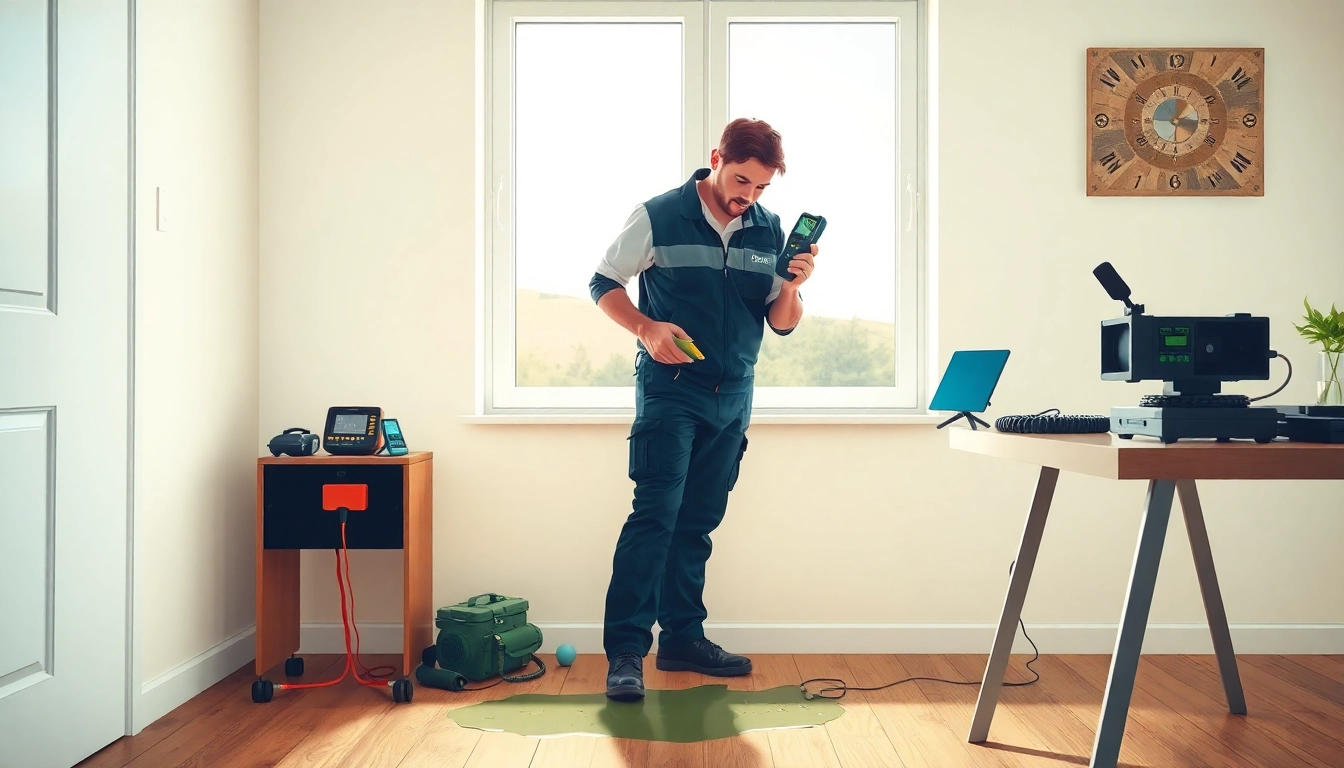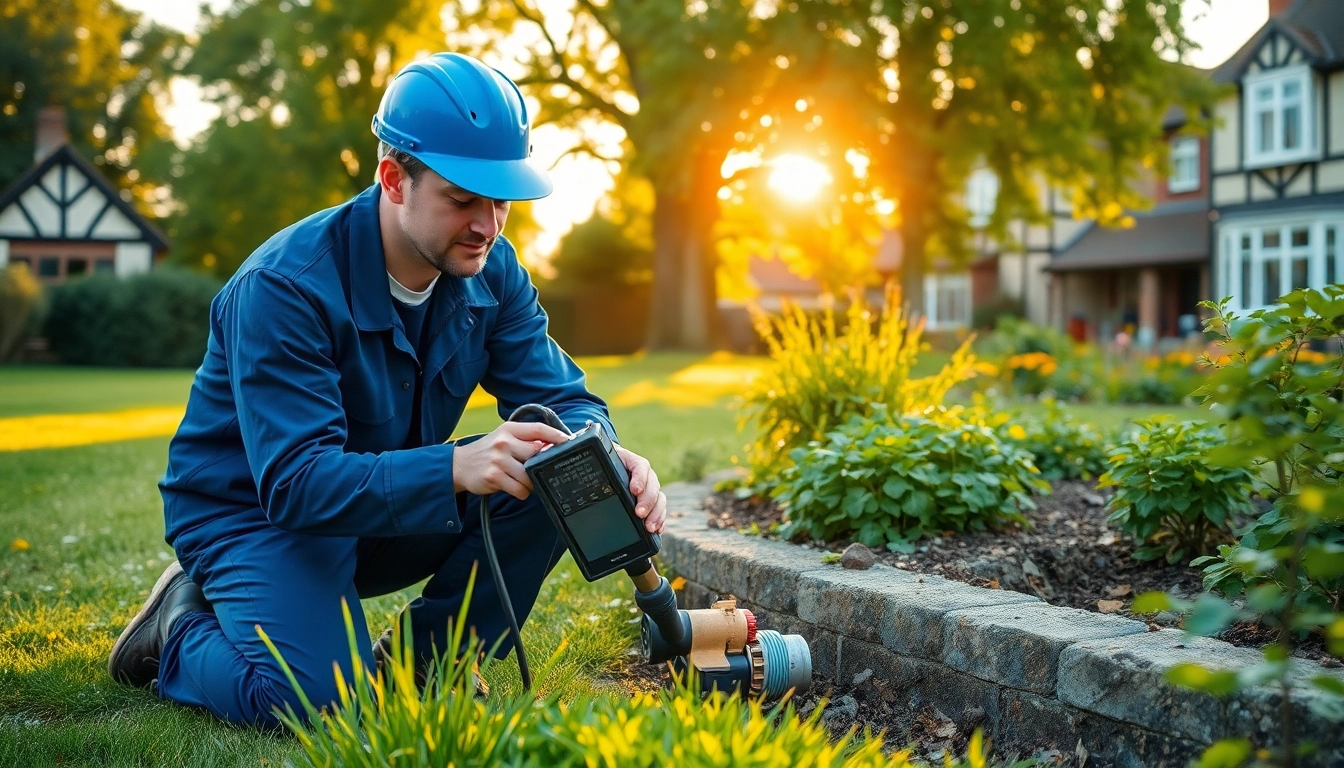Understanding Leak Detection Cornwall
Leaks are often elusive and can lead to significant damage if not addressed promptly. In regions like Cornwall, where homes may be older and infrastructure can be affected by the unique geography and climate, the importance of leak detection becomes paramount. This article aims to delve into the nuances of leak detection in Cornwall, discussing its significance for homeowners, common types of leaks encountered, modern detection methods, and what to expect from professionals in the field. For further information and expert assistance, explore Leak Detection Cornwall.
What is Leak Detection?
Leak detection refers to the process of identifying and locating leaks in water supply systems, plumbing, and other infrastructures. This involves using various technologies and methodologies to quickly pinpoint the source of water loss without invasive digging or destructive interventions. Detecting leaks early is essential in minimizing potential water damage, associated costs, and health hazards that can arise from mold and mildew.
Importance of Leak Detection for Homeowners
For homeowners, leak detection offers several benefits:
- Preventing Water Damage: Early detection of leaks can prevent extensive water damage that can lead to expensive repairs and structural issues.
- Reducing Water Bills: Unnoticed leaks contribute to decreased water efficiency and skyrocketing utility bills. Detecting and fixing them can help save money over time.
- Health Protection: Leaks can create environments conducive to mold growth, which poses health risks. Addressing leaks promptly reduces these risks.
- Increased Property Value: Maintaining a leak-free property helps preserve its value. Prospective buyers are more likely to be attracted to a well-maintained home.
Common Types of Leaks in Cornwall Homes
In Cornwall, homeowners may encounter various types of leaks, each requiring different approaches to detection and repair:
- Piping Leaks: Often found in older homes, corroded or damaged pipes can lead to significant leaks.
- Roof Leaks: Following heavy rainfall or storms, leaks in roofs can lead to moisture intrusion.
- Foundation Leaks: Water can seep through imperfections in the foundation, especially in areas with poor drainage.
- Bathroom and Kitchen Leaks: Plumbing fixtures and appliances can develop leaks over time, contributing to water wastage.
Signs Your Home Needs Leak Detection Cornwall Services
How to Identify Water Damage
Water damage manifests in various visible signs, including:
- Stains on Walls or Ceilings: Discoloration often indicates prolonged exposure to moisture.
- Peeling or Bubbling Paint: This can suggest underlying dampness from leaks.
- Mold or Mildew Growth: Presence indicates excessive moisture and potential leak sources.
Checking Your Water Bill for Unexplained Increases
An unexplained spike in your water bill may be the first indication of a hidden leak. If usage patterns have not changed significantly yet your bill has increased, it may be time to investigate further.
Indicators of Hidden Leaks Inside Your Walls
Some signs suggest that leaks may be hidden from view:
- Warm or Damp Spots: Unexplained warm areas on walls can indicate hot water leaks.
- Unusual Sounds: The sound of running water when all fixtures are off might suggest a hidden leak.
- Unpleasant Odors: Musty smells inside your home can be a sign of mold growth due to lingering moisture.
Modern Techniques in Leak Detection Cornwall
Non-Destructive Leak Detection Methods
Non-destructive methods avoid damaging walls, landscaping, or structures. Some common methods include:
- Moisture Meters: These can detect moisture levels in materials without causing damage.
- Gas Tracer Detection: This method uses a harmless gas introduced into the plumbing system to locate leaks based on gas concentration.
Using Thermal Imaging for Leak Identification
Thermal imaging cameras detect temperature variations that indicate moisture presence. This technology is particularly effective in identifying leaks behind walls or in ceilings, making it a valuable tool for leak detection specialists.
Benefits of Acoustic Leak Detection Technology
Acoustic leak detection involves using sensitive microphones to listen for the sound of leaking water. This method allows specialists to determine the location of leaks with pinpoint accuracy, even if they are concealed behind walls or underground.
What to Expect from a Leak Detection Cornwall Specialist
Initial Assessment Process
When you contact a leak detection specialist, they will begin with an initial assessment to understand your concerns. This usually involves:
- Interviewing the Homeowner: Gathering information about any noticeable signs of leaks and water usage patterns.
- Visual Inspections: Conducting a thorough inspection of visible plumbing, fixtures, and access points.
Tools and Equipment Used During Leak Detection
Professionals employ various specialized tools, including:
- Thermal Cameras: For spotting temperature differences due to moisture.
- Acoustic Sensors: To detect sounds associated with leaking water.
- Moisture Meters: For determining moisture content in building materials.
Follow-Up Services for Repair and Maintenance
After leak detection, specialists often provide a comprehensive report and may offer or recommend repair services. This can include patching leaks, repairs to affected areas, or suggestions for improvements to prevent future leaks.
Maintaining Your Home After Leak Detection Cornwall Services
Tips for Preventing Future Leaks
Addressing leaks is just the beginning; maintaining your home to prevent new leaks is crucial:
- Regular Inspections: Conduct periodic checks of your plumbing and fixtures for signs of wear or damage.
- Understanding Your Plumbing System: Familiarizing yourself with the plumbing layout can help you identify issues more quickly.
- Consider Pressure Regulators: High water pressure can cause pipes to wear out faster. Installing regulators can help mitigate this.
Regular Home Inspections
Engaging professionals for routine home inspections is essential for early leak detection. Scheduling inspections bi-annually or annually can identify potential issues before they escalate.
Understanding Your Insurance Coverage for Water Damage
Knowing your insurance policy details about water damage can save you from unexpected expenses. Many policies cover water damage from plumbing failures but check your coverage for specific exclusions or conditions regarding preventative maintenance.



